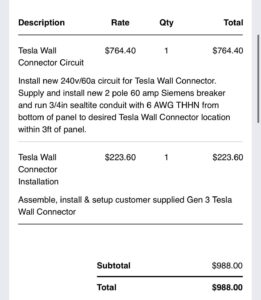Looking for a portable heating solution that doesn’t require an outlet or fuel source? Well, you may be pleased to know that there is indeed such a thing as a battery powered heater! Whether you’re camping in the great outdoors or simply seeking warmth during a power outage, a battery powered heater can provide the coziness you desire. In this article, we’ll explore the ins and outs of these innovative devices, discussing their effectiveness, limitations, and the best options available. So, if you’ve ever wondered, “Is there such thing as a battery powered heater?” – stay tuned to find out more!
Is There Such Thing as a Battery Powered Heater?
When it comes to staying warm during cold winter months or chilly outdoor activities, a reliable heating source is essential. While traditional heating options like electric or gas-powered heaters are widely available, you may find yourself wondering if there is such a thing as a battery-powered heater. In this article, we will explore the concept of battery-powered heaters and discuss their feasibility, limitations, and potential applications.
Understanding Battery-Powered Heating
To understand battery-powered heaters, it is important to grasp the basic principles of how heating devices operate. Traditional heaters typically rely on electrical power or combustion of fuels like gas or oil to generate heat. Battery-powered heaters, on the other hand, utilize rechargeable or disposable batteries as their source of energy. These heaters employ different mechanisms to convert electrical energy from the battery into heat.
Types of Battery-Powered Heaters
There are several types of battery-powered heaters available on the market, each with its own set of features and applications. Let’s take a closer look at some popular options:
- Portable Electric Heaters: These heaters utilize rechargeable batteries to power an electrical element, such as a coil or ceramic heating element. The battery provides the necessary energy to generate heat and keep you warm. Portable electric heaters are lightweight and offer convenience, making them suitable for camping, outdoor activities, or emergency heating scenarios.
- Battery-Powered Space Heaters: Battery-powered space heaters are designed to heat small or enclosed spaces. They often come with low-power consumption mechanisms to maximize battery life. While they may not generate as much heat as their electric or gas counterparts, they can provide localized warmth in areas without access to traditional heating sources.
- Hand Warmers and Heating Pads: Hand warmers and heating pads are compact and portable devices that use batteries to generate heat. These devices often employ exothermic chemical reactions or electrical elements to provide warmth. They are commonly used for outdoor activities, on-the-go warmth, or to relieve muscle soreness.
The Feasibility of Battery-Powered Heaters
Now that we have explored some types of battery-powered heaters, it is important to discuss their feasibility and limitations. While battery-powered heaters offer portability and convenience, there are certain factors to consider:
Battery Life:
The primary challenge with battery-powered heaters is the limited battery life. Batteries can only store a certain amount of energy, which eventually depletes as the heater operates. The heat output and duration of warmth depend on the capacity of the battery and the power consumption of the heater. It is crucial to choose a heater with an appropriate battery capacity to meet your heating needs.
Heat Output:
Battery-powered heaters generally have lower heat output compared to traditional heating devices. This is due to the limited power supply from batteries, which may result in less heat generation. It is important to manage your expectations and understand that battery-powered heaters may not provide the same level of warmth as standard electric or fuel-powered heaters.
Usage and Application:
Battery-powered heaters are best suited for specific situations and applications. They are ideal for outdoor activities, camping, and emergency heating when traditional heating sources are not available. These heaters can provide localized warmth and are not intended to heat entire rooms or large spaces. Understanding the intended use and limitations of battery-powered heaters will help you make an informed decision.
Factors to Consider When Choosing a Battery-Powered Heater
When selecting a battery-powered heater, consider the following factors:
Battery Type:
Different battery types can affect the performance and overall experience of a battery-powered heater. Rechargeable batteries, such as lithium-ion or nickel-metal hydride (NiMH), offer convenience and cost-effectiveness in the long run. Disposable batteries, like alkaline or lithium, provide a readily available power source but may require frequent replacements.
Battery Capacity:
The capacity of the battery determines how long the heater can operate before the battery needs recharging or replacement. Higher battery capacities offer longer heating durations but may also increase the weight and size of the heater. Consider your heating needs and the intended usage time when selecting a battery-powered heater.
Heating Mechanism:
Battery-powered heaters employ various heating mechanisms, including electrical elements, exothermic reactions, or even use of heating packs. Understanding the heating mechanism will help you determine the suitability of the heater for your desired application.
Safety Features:
Ensure the battery-powered heater you choose has the necessary safety features to prevent overheating, short circuits, or other potential hazards. Look for features such as automatic shut-off, temperature control, and protective casing.
While battery-powered heaters offer convenience and portability, there are certain limitations to consider. They are best suited for specific applications, such as outdoor activities, camping, or emergency heating. When choosing a battery-powered heater, pay attention to battery type, capacity, heating mechanism, and safety features to ensure your needs are met. Keep in mind that battery-powered heaters may not provide the same level of heat output as traditional heating devices. Consider your heating requirements and choose a heater that aligns with your specific needs. Stay warm and cozy, even when traditional heating sources are not readily available, with a reliable battery-powered heater.
Frequently Asked Questions
Question: Can I find a battery powered heater?
Answer: Yes, it is possible to find battery powered heaters. These heaters are designed to operate without a direct connection to an electrical outlet and are typically portable, making them convenient for various situations.
Question: How do battery powered heaters work?
Answer: Battery powered heaters typically use rechargeable batteries or disposable batteries to generate heat. They utilize heating elements or technology such as ceramic heating plates or thermoelectric modules to convert electrical energy from the battery into heat, providing warmth in small spaces.
Question: What are the advantages of using a battery powered heater?
Answer: Battery powered heaters offer several advantages. They provide heating capabilities in areas where no power outlets are available, such as during outdoor activities like camping or in emergency situations. They are also portable and lightweight, allowing easy transportation. Additionally, some models offer energy-efficient settings to conserve battery life.
Question: What are the limitations of battery powered heaters?
Answer: While battery powered heaters are convenient, they have certain limitations. Due to the limited capacity of batteries, the heating duration may be shorter compared to wired heaters. The amount of heat produced may also be less compared to traditional heaters. It is essential to consider the specific battery life and heating capacity of the model you choose.
Question: Where can I use a battery powered heater?
Answer: Battery powered heaters can be used in various situations and environments. They are commonly used in outdoor activities such as camping, hiking, or fishing, where access to power outlets is limited. Battery powered heaters can also be useful during power outages, in vehicles, or in small enclosed spaces like offices, garages, or tents.
Final Thoughts
While there are various portable heating options available, a battery powered heater is not a commonly seen device. Battery technology and the power requirements for heating make it difficult to produce an efficient and effective battery powered heater. The limited capacity of batteries and the high energy demand of heating processes make it challenging to create a compact and long-lasting solution. However, there are alternative options like battery-operated heated blankets or hand warmers that use minimal power and provide localized warmth. So, if you are looking for a battery powered heater, you may find it challenging to come across one that meets your requirements.



